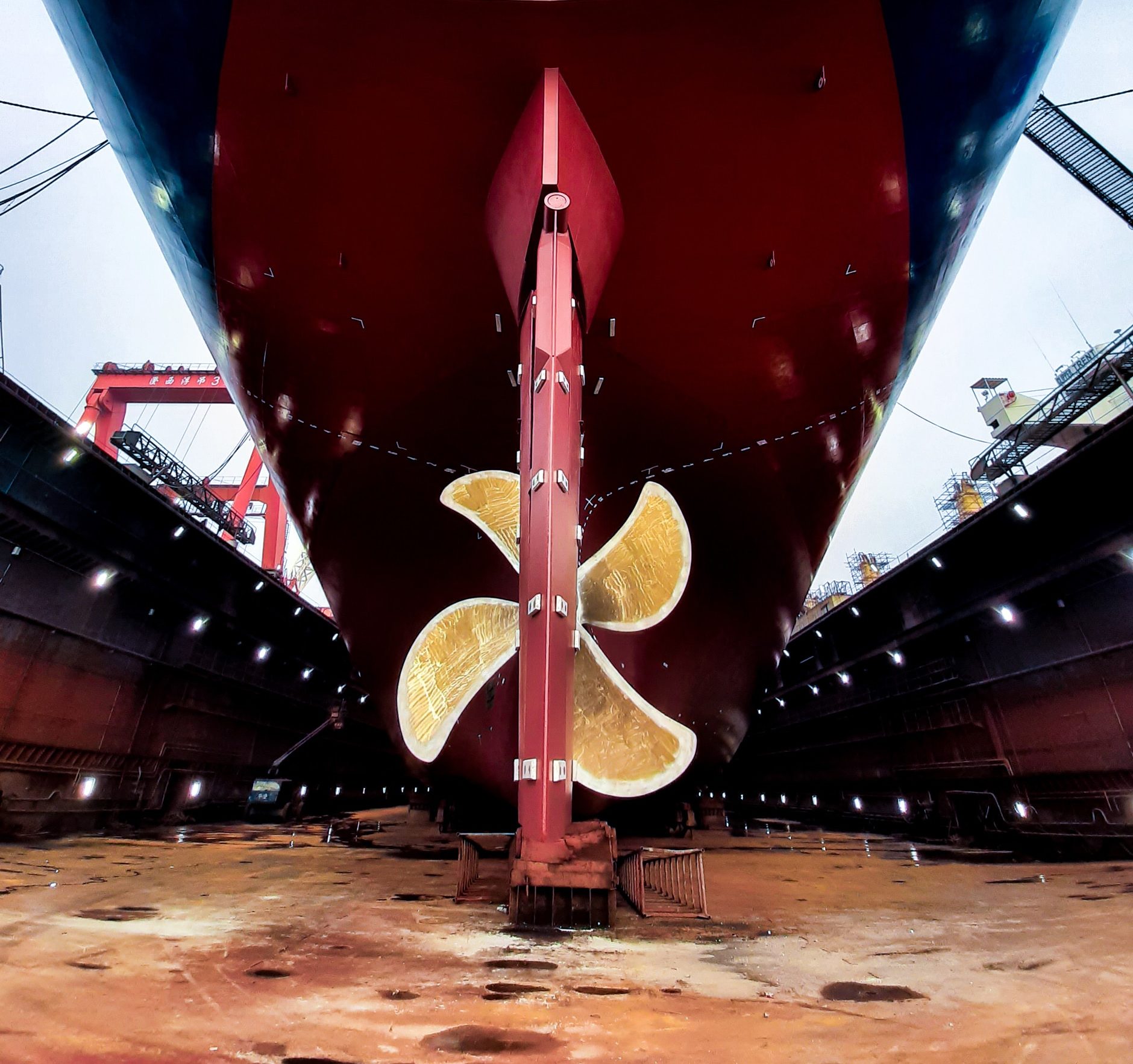
Grieg Maritime Group has committed itself to supporting the Norwegian Shipowner’s Association’s goal of carbon-neutral operations by 2050. Our Technology and Decarbonization team is responsible for driving this change in our Open Hatch fleet.
We are committed to ensuring that all vessels ordered after 2030 have zero greenhouse gas emissions from their propulsion systems. Achieving this goal will require a significant shift in our thinking and operations. We must research, design, and test new propulsion systems and vessels to replace existing ships. However, scrapping ships that are ten or fifteen years old is not sustainable. We must, therefore, work to decrease emissions from our existing fleet through decarbonization, including using cleaner fuels and retrofitting existing ships.
To achieve this, we have assembled a team of maritime engineers and experts, led by our VP of Technology Decarbonization, who will work to get us to a carbon-neutral situation well ahead of 2050. Their goal is to reduce emissions as much as possible along the way. This is a challenging task, but we are determined to succeed.
Historically, ships were propelled by oars or sails until the late 1700s when steam engines were introduced. About a hundred years later, the first fuel-oil engine was installed. Moving forward, we need to develop new and untested technology to avoid a climate crisis. This time, we cannot simply adopt new technology to be more efficient; we must create something entirely new to achieve our emissions goals.
A Mewis Duct is a hydrodynamic device installed in front of a ship’s propeller to enhance propulsion efficiency. It works by optimizing water flow into the propeller, increasing thrust and improving fuel efficiency.
Whenever a crane lowers its cargo, it releases energy – energy we reclaim through the regeneration by the electric motors. With 100% electric cranes, we can use that energy to reduce engine usage while alongside.
The power regeneration on the cranes lets us store the energy in battery packs. The battery pack may then be used to actively shave energy peaks, reducing the number of generators running in parallel and optimizing the running load.
PBCF is an energy-saving device installed on the hub of a vessel’s propeller. It improves propeller efficiency by weakening the hub vortex generated behind the rotating propeller and reduces fuel consumption by up to 3%.
We use waste heat from engines for heating accommodation and other equipment that require heating. We do this at sea with an exhaust gas economizer while we use the HT water in port.
A ship’s speed and route are often requested or suggested by onshore experts. But the input and experience of the crew onboard are vital to ensure our ships sail as energy efficient as possible. Therefore, we highlight and train on energy awareness for all onboard crew.
Variable Frequency Drive (VFD) on our main cooling pumps and fans reduces the ship’s energy and fuel consumption, as motors run at the required speed based on cooling demand rather than 100%.
Refrigerants have a global warming potential several hundred times larger than CO2. Being able to detect leakage of these refrigerants immediately is key in fighting global warming.